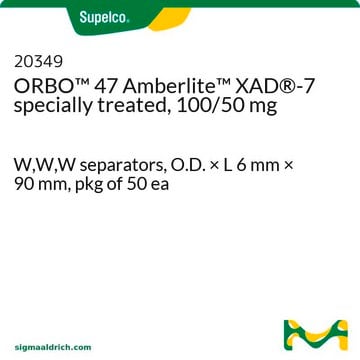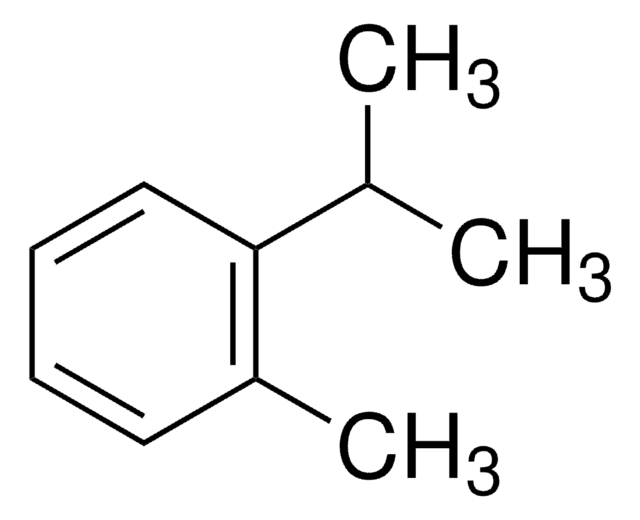20358
ORBO™ 90 Carboxen® 564 (20/45), 160/80 mg
W,F,F separators, O.D. × L 6 mm × 75 mm, pkg of 25 ea, for analyte group MEK (methylethyl ketone)
Synonym(s):
ORBO™ Carboxen-564 Tube
About This Item
Recommended Products
material
W,F,F separators
Agency
NIOSH 2500
product line
ORBO™
composition
Bed A, 160 mg
Bed B, 80 mg
packaging
pkg of 25 ea
manufacturer/tradename
ORBO™ 90
technique(s)
active air sampling: suitable
O.D. × L
6 mm × 75 mm
matrix
Carboxen® 564 Carbon Molecular Sieve (CMS)
particle size
20-45 mesh
application(s)
air monitoring
environmental
industrial hygiene
compatibility
for analyte group MEK (methylethyl ketone)
Looking for similar products? Visit Product Comparison Guide
Related Categories
General description
- ORBO™ 90 Carboxen® 564 (20/45), 160/80 mg solvent desorption tube is designed for gas and vapor sampling.
- It contains two beds of the same selective adsorbent separated by glass wool or foam.
- Dual-layer or two-bed construction of the tube allows for any sample breakthrough to be captured in the smaller back-up bed.
Legal Information
Storage Class Code
11 - Combustible Solids
WGK
nwg
Flash Point(F)
Not applicable
Flash Point(C)
Not applicable
Choose from one of the most recent versions:
Certificates of Analysis (COA)
Sorry, we don't have COAs for this product available online at this time.
If you need assistance, please contact Customer Support.
Already Own This Product?
Find documentation for the products that you have recently purchased in the Document Library.
Customers Also Viewed
Our team of scientists has experience in all areas of research including Life Science, Material Science, Chemical Synthesis, Chromatography, Analytical and many others.
Contact Technical Service








